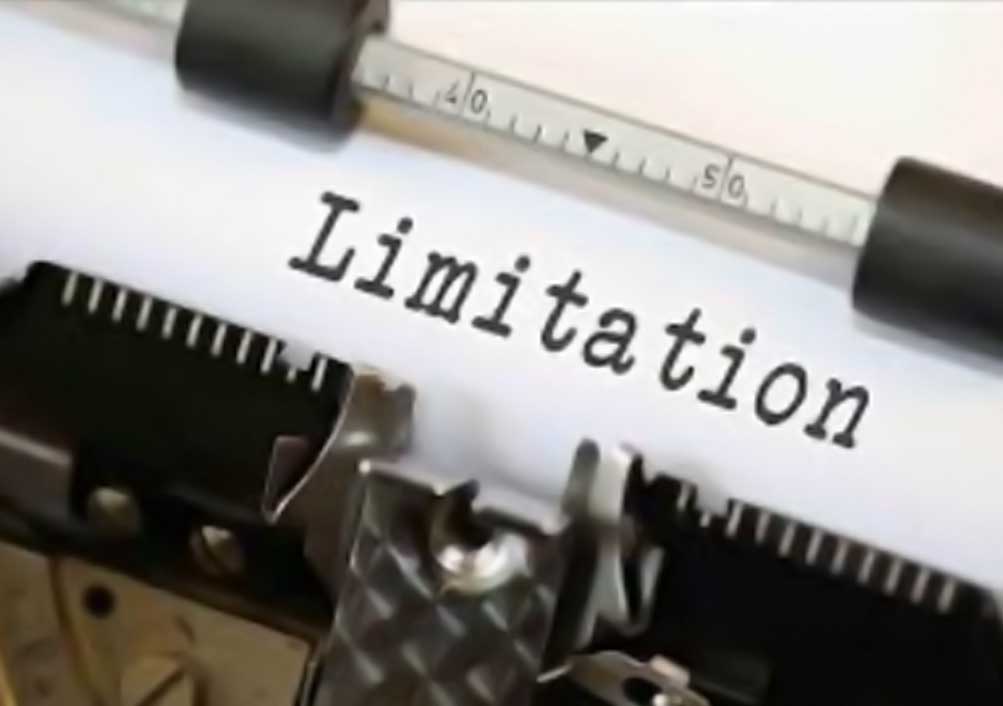In RSA-5701-2019 (O&M)-PUNJ HC-In terms of Article 59 of Limitation Act, limitation to cancel or set aside instrument/decree is 3 years which is counted from date of knowledge of plaintiff-appellant, clarifies P&H HC
Justice Alka Sarin [20-09-2022]

Read Order: Om Parkash @ Satpal v. Topan Dass and Another
Monika Rahar
Chandigarh, September 21, 2022: While dealing with a regular second appeal challenging a sale deed on the ground that the plaintiff-appellant was a minor at the time of execution of the sale deed and his father sold the property in question without the permission of the Court, the Punjab and Haryana High Court has held that as per Article 59 of the Limitation Act, 1963, the limitation to set aside an instrument or decree or for cancellation of the same is 3 years which is counted from the date of knowledge of the plaintiff-appellant.
Adverting to the present case, the Bench of Justice Alka Sarin, while dismissing the appeal, held, “A perusal of the plaint, as noticed earlier, reveals that it is totally silent as to when the plaintiff-appellant came to know of the said alleged fraud.”
The brief facts relevant to the present lis are that the plaintiff-appellant challenged the sale deed whereby he and his father purportedly sold their land as per jamabandi for the year 1982-83 to the defendant-respondents. The challenge was on the ground that the plaintiff-appellant was a minor at the time of execution of the sale deed and that no permission was sought from the Court to sell his share.
It was further pleaded that the father of the plaintiff-appellant hatched a conspiracy with the defendant-respondents and got the sale deed executed knowing fully that the plaintiff-appellant was a minor and his father was not competent to execute the sale deed.
The suit was contested by the defendant-respondents on the ground of limitation, maintainability, jurisdiction and valuation. On merits, it was denied that the plaintiff-appellant was a minor at the time of execution of the sale deed.
The Trial Court dismissed the suit holding that the plaintiff-appellant failed to show that he was a minor at the time of execution of the sale deed. It was further held that the suit was barred by limitation. Aggrieved by the said judgement and decree, an appeal was preferred which was also dismissed by the lower Appellate Court. Hence, the present regular second appeal.
The counsel for the plaintiff-appellant contended that the minority of the plaintiff-appellant stood duly proved by way of a certificate issued by the school showing his date of birth as May 21, 1972, and since the sale deed was executed on February 24, 1987, therefore, it was apparent that the plaintiff-appellant was 14 years of age and hence, the sale deed could not have been executed without the permission of the Court. The Counsel further contended that the suit was also dismissed on the ground of limitation, however, the contention was that there would be no limitation as the document under challenge was null and void.
After hearing the parties, the Court observed that to prove the date of birth of the plaintiff-appellant only a certificate allegedly issued by the school and written, not on the letterhead of the school but on a plain piece of paper, was produced. Further, the Court made reference to the deposition of the Head Teacher, Government Primary School, Sadarpur (Karnal) who stated that the document was not prepared by him and that in the original register the name of the mother of the appellant was not mentioned and the same was mentioned on the certificate on the asking of the plaintiff-appellant. He also deposed that the plaintiff-appellant was not admitted to the school by him nor had he issued the certificate.
The argument of the counsel for the plaintiff-appellant that by producing the said certificate in evidence the plaintiff-appellant had discharged his onus and that the onus had shifted on the defendant-respondents to prove otherwise, was not accepted by the Court inasmuch as the signature and stamp on the certificate (purportedly of the school headmaster) was not found by the Court to be proved.
Also, the argument of the counsel for the plaintiff-appellant that the suit was wrongly dismissed for being barred by limitation was also rejected by the Court on the ground that though (as revealed in the plaint) the plaintiff-appellant was 14 years of age at the time of execution of the sale deed, however, despite having turned 18 in the year 1991 the suit was filed in the year 2012.
Further, the Bench opined that apart from having a simpliciter statement in the plaint that the plaintiff-appellant on coming to know of the fraud played by the defendant-respondents upon the plaintiff-appellant, requested the defendant-respondents to get the sale deed declared illegal, null and void, there was no averment as to when the plaintiff-appellant came to know of the said sale deed.
Against this background, the Court opined, “As per Article 59 of the Limitation Act, 1963, the limitation to set aside an instrument or decree or for cancellation of the same is 03 years which is counted from the date of knowledge of the plaintiff-appellant. A perusal of the plaint, as noticed earlier, reveals that it is totally silent as to when the plaintiff-appellant came to know of the said alleged fraud.”
Sign up for our weekly newsletter to stay up to date on our product, events featured blog, special offer and all of the exciting things that take place here at Legitquest.




Add a Comment